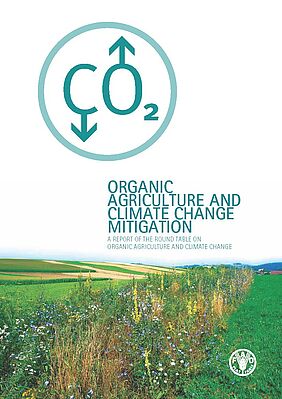The Round Table on Organic Agriculture and Climate Change (RTOACC) currently brings together a total of 23 member organizations. Since its inception in late 2009 the RTOACC has focused on three main issues. A 70-page report summarizes the output of the of three Round Table workshops held to address these issues. FiBL has worked on the potential of organic agriculture for soil carbon sequestration and identified research gaps. Moreover the FiBL authors outline the challenges to be expected if carbon certificates are to be generated through organic management.
Under the leadership of Danish researchers, RTOACC closely examined the life cycle analysis methodology. Life cycle assessments (LCA) are often used to assess the climate impact of agricultural production systems. The study gives an excellent overview of life cycle assessments which compared organic and non-organic products. The review found no general differences between the climate impacts of organic and conventional products. This is thought to be due to the fact that LCA studies to date have, for example, not taken soil carbon sequestration into account. In order for the potential of sustainable land management systems to be adequately taken into account, the methodology needs to be further developed.
The study entitled “Organic Agriculture and Climate Change Mitigation” is published by the Food and Agriculture Organization of the United Nations (FAO). The publication’s contents were compiled under the aegis of the International Centre for Research in Organic Food Systems (ICROFS) and FiBL. The FAO also facilitated the international exchange as part of the RTOACC. With this publication the Round Table provides both an overview of the latest research findings and widely supported base values for future investigations. There are currently 23 RTOACC member organizations.
Further information
Contact
Contact at FiBL: Andreas Gattinger and Adrian Müller





